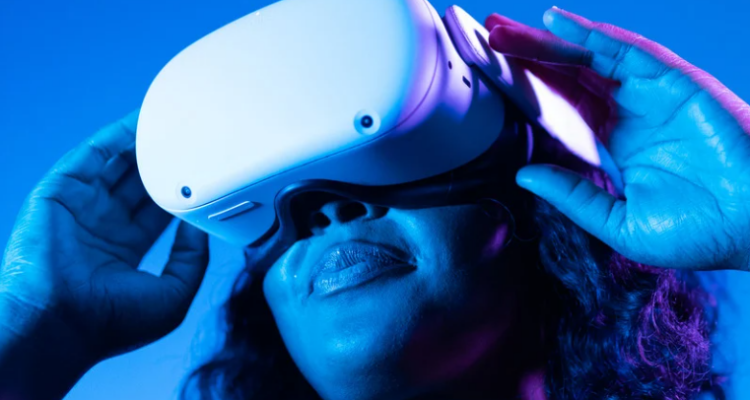Pros And Cons Of This Modern Trend
Virtual Reality (VR) marks a significant change in how we interact with digital environments. It provides deep immersion and has major psychological effects.
As a consequence, platforms like HellSpin Casino are at the centre of this discussion when talking about gaming.
As VR technology develops and becomes more accessible, it’s important to examine both its therapeutic potential and the psychological risks involved in its use in gaming.
The Definition of Virtual Reality
Virtual reality (VR) is a technology that creates a simulated environment. Besides it is separate from the real world, it can be powerfully real. This perception combines software and hardware to immerse users in a digital setting. This immersion uses sensory inputs, like visual, auditory, and sometimes haptic feedback. Tricked by the mentioned stimulus, the brain is trapped in the virtual world, which means that the brain interprets VR as real.
VR needs a pair of headsets or specialized goggles to be brought to life. This apparatus allows users to interact with the virtual space, even manipulating objects or performing tasks.
VR is now a technology used in various fields. We can mention for example gaming, training simulations, education, and medical therapy. It is a resource that enhances both recreational and practical experiences.
Immersion and Presence in VR
The main effect of VR is its ability to create a sense of presence. This is the feeling that you are really “there” in the virtual world. This effect is achieved using high-quality visuals, 3D audio, and interactive elements. These respond to the user’s movements and actions instantly. This deep immersion can greatly influence the player’s psychological state. It intensifies emotions and alters how sensory experiences are processed.
Therapeutic Benefits of VR Gaming
Emotional and Cognitive Relief
VR gaming is being used in therapy, especially for mental health. VR environments can be made to help relax and reduce stress with peaceful, scenic landscapes. For example, games like “Nature Treks VR” let users customize their environment. Players can engage in activities that promote calmness and mindfulness.
Treatment of Phobias and Anxiety
VR can also treat phobias and anxiety disorders. It’s a tool to safely expose patients to their fears. This helps individuals learn to handle anxiety-inducing situations. The method, called Virtual Reality Exposure Therapy (VRET), has been effective. It helps with specific phobias, social anxiety, and PTSD.
Cognitive Rehabilitation
VR games can aid in cognitive rehabilitation too. VR memory games, for example, can assist those with cognitive impairments or recovering from brain injuries.

These games are usually more engaging and less stressful than traditional therapies.
Psychological Risks of VR Gaming
Desensitization and Reality Confusion
However, VR also has risks. Long use of very realistic VR might cause desensitization to certain stimuli after removing the headset. There is a risk of confusing reality, especially for children and teens still developing mentally. Users might start mixing up what’s real and what’s virtual.
Motion Sickness and Disorientation
VR can cause motion sickness, known as cybersickness. This happens when there’s a mismatch between what the eyes see and what the body feels. It often occurs during quick movements in the game. This issue can cause nausea, dizziness, and headaches. It may prevent users from enjoying VR gaming.
Emotional Overload
Intense VR experiences can provoke strong emotional reactions. For people with existing mental health issues, some VR themes or settings might worsen symptoms like anxiety or depression.
Unique VR Experiences for Mental Health
Innovations in VR gaming are expanding its uses for emotional and psychological relief. For example, the game “Deep” is an underwater meditation experience. It uses biofeedback to teach players stress management through controlled breathing. Another game, “The Walk,” involves a journey across a plank high above a virtual city. It helps players safely face their fear of heights.
Ethical Considerations and Future Directions
As VR technology grows in psychological interventions, it brings up important ethical issues. These include making sure VR treatments are backed by solid research and handled by experts. It also involves keeping private information secure in digital spaces.

Additionally, as we study VR gaming’s psychological effects more, refining these digital experiences is crucial. We aim to enhance benefits and reduce risks. Future research should explore VR gaming’s long-term effects. This will help developers and therapists create safer, more effective virtual environments.
Virtual Reality: A Little Explored Technology
The psychological effects of VR gaming are complex and varied. They offer both great therapeutic benefits and serious risks. As this field expands, maintaining a balance will be key. By further studying VR’s impacts, developers, therapists, and users will be able to use this technology with more awareness. It will help to improve mental health and well-being while addressing potential challenges.







